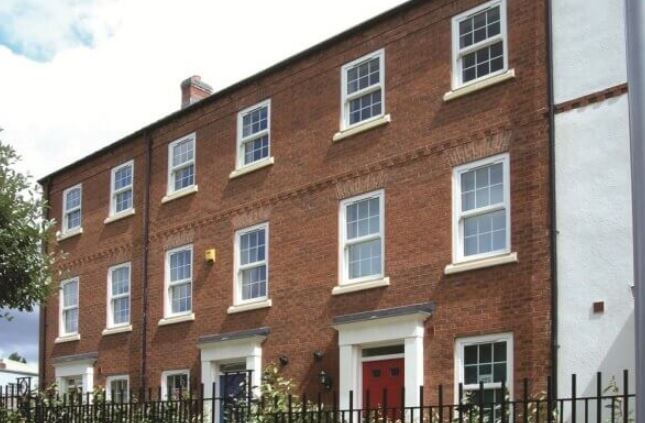Embarking on a building project, whether it's a new home or an extension, involves a myriad of decisions and budget considerations.
One crucial aspect often overlooked is the cost of bricks. This seemingly straightforward component can actually be quite complex, with prices ranging from £200 per 1000 for basic bricks to as much as £3 each for high-end, handmade ones.
To navigate this varied landscape, a deeper understanding of what drives brick costs is essential. In this blog, we'll explore these factors and provide practical advice on how to effectively plan and budget for your brick requirements.

Section 1: Factors Influencing Brick Prices
When planning a construction project, understanding the cost variations in bricks is crucial. Bricks, a fundamental building material, vary significantly in price based on several key factors. Here, we delve deeper into these factors, providing a more nuanced understanding of brick cost variations.
-
Supply and Demand Dynamics
- The primary factor influencing brick prices is the balance of supply and demand in the market.
- Recent trends: In the wake of construction booms and government housing initiatives, demand for bricks has surged, impacting prices. For example, during periods of high demand, prices for common bricks have been known to increase by as much as 10-15%.
-
Historical context: Post-recession, the industry saw a decrease in brick production capacity, leading to shortages. This scarcity resulted in a significant price hike, with some brick types seeing an increase of up to 20-30% over standard prices.
-
Manufacturing Process
- The method of brick manufacturing plays a significant role in determining its price.
- Machine-made bricks: Typically, machine-made bricks range from about £400 to £700 per 1000, depending on the type and quality. They are generally less expensive due to economies of scale in mass production.
-
Handmade bricks: These bricks, known for their unique appearance and higher quality, can cost anywhere from £800 to £1500 per 1000. The labour-intensive process and the artisanal aspect significantly contribute to this cost.
-
Type of Brick
- Different types of bricks are suited for various purposes, and this specialization impacts their price.
- Common bricks: Used mainly for internal, non-load-bearing walls, their price typically ranges from £200 to £350 per 1000.
- Engineering bricks: Known for their strength and durability, are generally priced around £450 to £600 per 1000. They are ideal for foundations and damp-proof courses.
- Facing bricks: Used for their aesthetic appeal on exterior walls, their costs can vary widely, from £400 per 1000 for standard types to over £1200 per 1000 for premium varieties with unique textures and colors.
Key Takeaway: 🌟 The cost of bricks is influenced by a range of factors including market demand, manufacturing processes, and the specific type of brick required. By having a clear understanding of these cost variations, you can make more informed decisions when budgeting for your construction project. Whether you need cost-effective common bricks or premium, aesthetically pleasing facing bricks, knowing the market rates ensures you stay within budget while achieving the desired outcome for your project.
Section 2: How to Accurately Price Your Masonry Project
Proper budgeting for a masonry project requires a holistic approach, taking into account several key factors.
-
Identifying the Right Brick Type
- The foundation of your project budget starts with choosing the appropriate brick. This choice should be based on the structural needs and aesthetic goals of your project. For example, using engineering bricks for foundations or facing bricks for visually appealing exteriors.
- The foundation of your project budget starts with choosing the appropriate brick. This choice should be based on the structural needs and aesthetic goals of your project. For example, using engineering bricks for foundations or facing bricks for visually appealing exteriors.
-
Aesthetic Considerations
- The visual aspect of your project is paramount, especially for external walls. Consider the style of your existing structure (if extending) or the desired look for a new build. Texture, color, and size variations in bricks can significantly influence the overall appearance of your building.
- The visual aspect of your project is paramount, especially for external walls. Consider the style of your existing structure (if extending) or the desired look for a new build. Texture, color, and size variations in bricks can significantly influence the overall appearance of your building.
-
Calculating Brick Quantity
- An accurate estimate of how many bricks you’ll need is essential. This calculation should account for the dimensions of your build, the thickness of the walls, and include a contingency for wastage. Overestimating can inflate your budget, while underestimating can lead to project delays.
- An accurate estimate of how many bricks you’ll need is essential. This calculation should account for the dimensions of your build, the thickness of the walls, and include a contingency for wastage. Overestimating can inflate your budget, while underestimating can lead to project delays.
-
Planning for Lead Times
- Bricks can have lengthy lead times, especially if you're opting for types in high demand or bespoke styles. Early planning and ordering are crucial to avoid project delays.
- Bricks can have lengthy lead times, especially if you're opting for types in high demand or bespoke styles. Early planning and ordering are crucial to avoid project delays.
-
Incorporating Labour Costs
- Labour costs can vary considerably and depend on the complexity of the work and regional variations in wages. It’s important to get detailed quotes from bricklayers and include this in your overall project budget.
Key Takeaway: 🌟 Accurate pricing of your masonry project comes down to careful planning and consideration of all elements involved, from the type of brick to labor costs. Take a comprehensive approach to ensure your project stays within budget and meets your expectations.
Conclusion
Navigating the cost of bricks for your UK construction project requires a good understanding of several factors: the balance of supply and demand in the market, the nuances of brick manufacturing processes, and the diverse types of bricks available.
In the world of construction, brick pricing is far from static; it’s influenced by global events, technological advancements, and UK building trends. From the impact of market fluctuations on common bricks to the premium pricing of handcrafted varieties, each aspect plays a pivotal role in shaping your project's budget.
Whether you’re choosing between the economic efficiency of machine-made bricks or the unique charm of handmade options, understanding these cost variations is essential for a successful build.
Moreover, the type of brick you select – be it the robust engineering brick for foundational work or the visually appealing facing brick for exteriors – not only influences your project's cost but also its final look and durability. This decision, coupled with accurate quantity estimations and careful consideration of labor costs, forms the backbone of your project planning.
As you embark on this construction journey, remember that thorough research and strategic planning are your best allies. Aligning your project’s requirements with the right brick type and budgeting accordingly can make the difference between a project that is merely completed and one that is completed exceptionally well.

